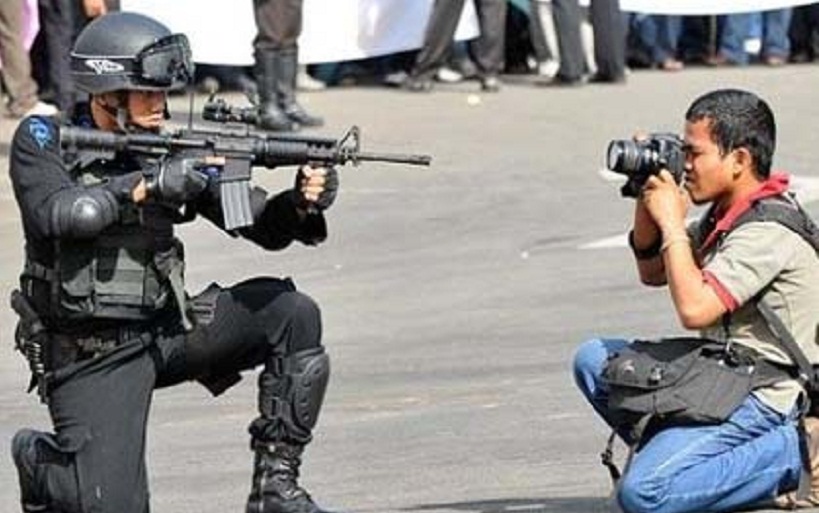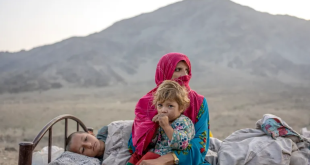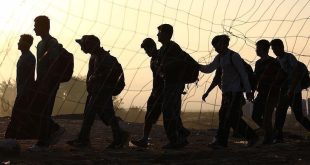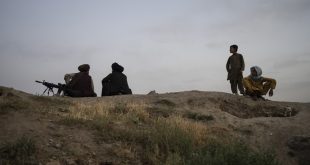The Reporters Without Borders, a watchdog, reported on Tuesday that this year 110 journalists were killed in the line of duty. Since 2005, as many as 787 journalists were killed in the world. Unfortunately, the killers enjoy impunity in most of the cases. Justice has not been provided to the victims in almost 95 percent of cases. Media-persons in the war-hit country are working under extremely difficult situation and often face threats and violence. In some provinces they are prevented to carry out their work. When the Taliban insurgents seized control of Kunduz city in the late September, they destroyed offices of 13 media organizations and displaced 92 journalists. Amidst growing concerns about threats faced by journalists in the country, the Chief Executive Officer Abdullah Abdullah vowed this year in April to enforce the Access to Information Law. He also pledged to ensure safety of newsmen and women in the country.
In Afghanistan, insurgents have frequently targeted and threatened journalists. In October 2015, the Taliban warned staff of the prominent news channels of dire consequences. Last year three journalists were killed. In 2011 and 2010, four journalists lost their lives. At least 27 media-persons were killed in the country since 1992 with confirmed motive. Families of foreign journalists received justice while the perpetrators in the local journalists’ cases yet to be brought to the court of justice.
Media is playing a very important role in strengthening democracy and development of the country. However, the warring parties including the government, Taliban and Daesh had imposed multiple and heavy restrictions over media to limit freedom of speech. These parties want to feed public with information of their choice. Despite that journalists are trying their best to remain neutral and provide accurate information to the readers, viewers and listeners. As far as the government’s attention towards media freedom is concerned, there is no deny that it could not bring reforms in the country’s political and social structure through use of sheer force or restricting mass media. The current government faced several challenges in just one year because it tried to chain media.
If the government wants to resolve the current challenges including corruption, extremism, insurgency, nepotism, drug addiction, illiteracy, violence against women and girls, smuggling, child labor, traffic accidents, injustice, environmental problem then it should seek media’s support. If journalists were allowed to work without any let or hindrance, surely, they would highlight the problems and promote the culture of debate in the country in order to fight intolerance and injustice.
No doubt, it is media that educates the public how to deal with the current problems and prevent the anti-state and anti-democratic forces from toppling the government. Without having accurate and complete information about the ground situation, the leaders could not fix the wrongdoings. Free media do this job better because it projects true pictures. Therefore, the government should enforce the Law on Access to Information as promised by Abdullah Abdullah and address problems of journalists.
 Afghanistan Times
Afghanistan Times




